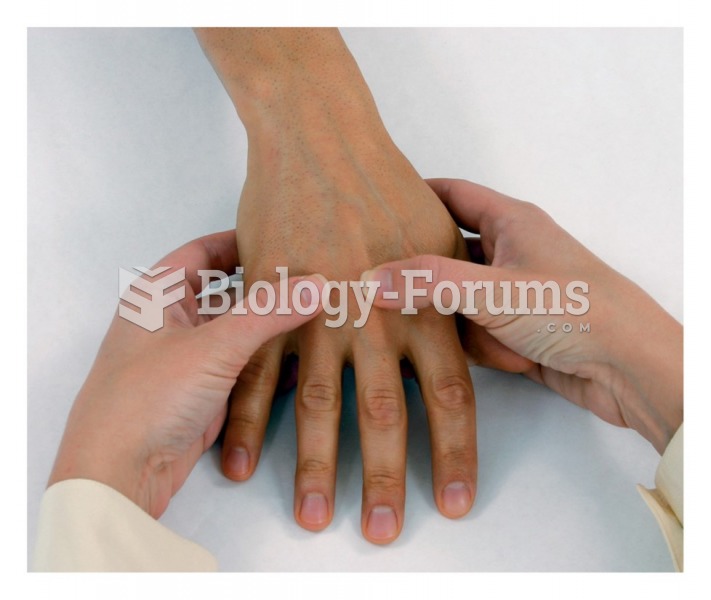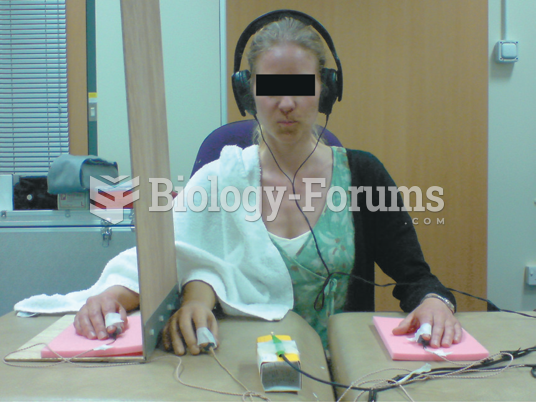|
|
|
In ancient Rome, many of the richer people in the population had lead-induced gout. The reason for this is unclear. Lead poisoning has also been linked to madness.
Earwax has antimicrobial properties that reduce the viability of bacteria and fungus in the human ear.
Thyroid conditions cause a higher risk of fibromyalgia and chronic fatigue syndrome.
In the United States, there is a birth every 8 seconds, according to the U.S. Census Bureau's Population Clock.
The Food and Drug Administration has approved Risperdal, an adult antipsychotic drug, for the symptomatic treatment of irritability in children and adolescents with autism. The approval is the first for the use of a drug to treat behaviors associated with autism in children. These behaviors are included under the general heading of irritability and include aggression, deliberate self-injury, and temper tantrums.







